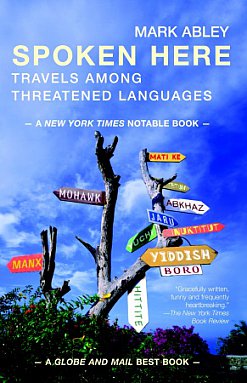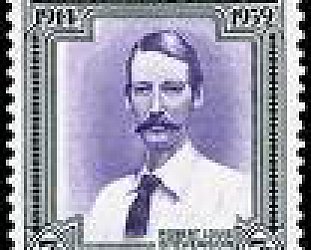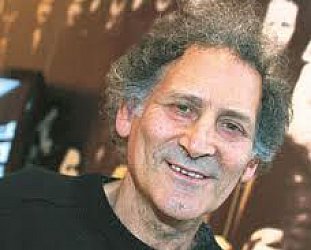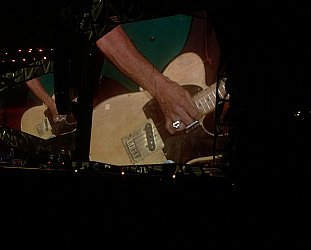Graham Reid | | 2 min read

When Captain James Cook ran aground on the Great Barrier Reef he spotted an unusual animal and was told by the aboriginal people it was called “kangaroo”. When he sailed home he took a stuffed specimen and the word -- the first aboriginal word to be adopted by the English language -- back to London.
Two decades later colonists at Botany Bay pointed to the animal and called it “kangaroo”, but the local Iora people had no idea what they were talking about. To them it was “patagarang”.
No surprise actually, given that it has been estimated there were once around 300 aboriginal languages. Today most are gone.
The Guugu Yimidhirr people who gave us the word “kangaroo” are down to a couple of dozen speakers of their language, and most of the languages in the areas of Australia’s major cities have vanished completely.
It is further estimated that of the 400 or so languages nearly extinct a third are in Australia.
Canadian author Abley -- whose Spoken Here is subtitled Travels Among Threatened Languages -- is an assiduous seeker of such threatened tongues. This remarkable book traces the fall (and rise) of some of the languages which have had a tenuous grasp on survival.
Abley encounters the last remaining speakers of Yuchi, a Native American tribe in a small corner of Oklahoma who were assimilated into the Creek Nation but whose vocabulary contains very few words which exist in any other language. Through videotape and regular conversations the old people are trying to keep their language alive.
“Those words are mortal,” he writes. “Soon, perhaps now, you may be able to count the number of fluent Yuchi speakers on the fingers of both hands.”
A recent survey showed that of the 154 Native American languages still in use, 77 percent are spoken by fewer than 1000 people.
Abley argues such languages -- which define a culture -- are under threat from the tyranny of English and other more powerful common tongues, but that they are also face attrition from within.
He writes of a mural showing a dry-season camp on a wall in Australia’s remote Northern Territory. On it some local aboriginal hip-hopper had graffiti-ed: “No more culture for us. Gangsta games we ride”.
English is the Wal-Mart of languages he says: convenient, huge, hard to avoid, superficially friendly and devouring all rivals in its eagerness to expand. One French writer, Claude Duneton, has predicted that his language will disappear beneath the incursion of English within 60 years. So what hope oral cultures which are always one generation away from extinction?
Yet Abley also writes of how some languages -- Welsh, Hebrew and Yiddish -- have survived and are now thriving.
Often their survival has been the work of a single, passionate speaker such as Lithuanian-born Eliezer Perelman (later Eliezer Ben-Yehuda) who only spoke Hebrew, a language which 130 years ago no child had as his or her mother tongue. It was the language of faith, not of daily use.
Ben-Yehuda codified the language, created the Hebrew Language Council, launched a newspaper in Hebrew and was a feverishly busy lexicographer. If a word didn’t exist in Hebrew, he created it.
Before Ben-Yehuda, the saying goes, Jews couldn’t speak Hebrew, after him they did.
The revival of the language of the Faeroe Islands, Hixkaryana in northern Brazil, Provencal, Welsh and Basque, have all been spurred on by a single language patriot.
Abley accounts for the rise and fall of the creative but fatally-created Esperanto, how bastardised English enters languages (in Moscow they say, “Don’t vori, bi khepi”), and how more 600,000 Beijing residents were told they needed basic English to keep their jobs during the 2008 Olympics. Even if they had no idea what they were saying.
Abley weaves questions of language, culture and syntax together with sometimes dry wit -- so, you want that he shouldn’t use Yiddish sentence construction throughout that chapter?
But mostly through a rare blend of scholarship and encounters with native speakers he provides an engrossing study-cum-travelogue which effortlessly takes the reader from Mohawk to Manx, and raises serious questions about how much Mankind is losing before the onslaught of English and linguistic globalisation.
Know, wha’um sayin’? Say wha, bro’?
S’all good.







post a comment